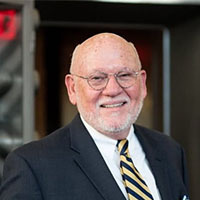Shelton RICO Act Lawyer, Connecticut
Sponsored Law Firm
-
 x
x

Click For More Info:
-
Andrew M Amendola, Attorney at Law
591 Thompson Avenue East Haven, CT 06512» view mapAccident & Injury, Criminal, Estate, Real Estate Where Every Client Matters
Let Andrew M Amendola, Attorney at Law handle all your legal needs today@
800-942-4780
Not enough matches for Shelton RICO Act lawyer.
Below are all Shelton Criminal lawyers.
James O Ruane
Motor Vehicle, DUI-DWI, Criminal
Jay Ruane is a practicing lawyer in the state of Connecticut.
James J Ruane
Motor Vehicle, Criminal, Consumer Rights, Business
James J. Ruane is a practicing lawyer in the state of Connecticut.
Paul Christopher Gusmano
✓ VERIFIEDCar Accident, Accident & Injury, Wills & Probate, Wrongful Death, Criminal
Attorney Gusmano was chosen for inclusion in 'Connecticut Magazine and New England Super Lawyers Magazine as a Super Lawyer in Personal Injury from 20... (more)
John T. Walkley
Military & Veterans Appeals, Federal Trial Practice, Family Law, Criminal
Status: In Good Standing
Kim Coleman Waisonovitz
Civil Rights, Constitutional Law, Criminal, Employment Discrimination
Status: In Good Standing
Jonathan Andrew Wetmore
Lawsuit & Dispute, Estate, White Collar Crime, Criminal, Accident & Injury
Status: In Good Standing Licensed: 18 Years
 Andrew Amendola East Haven, CT
Andrew Amendola East Haven, CT AboutAndrew M Amendola, Attorney at Law
AboutAndrew M Amendola, Attorney at Law



